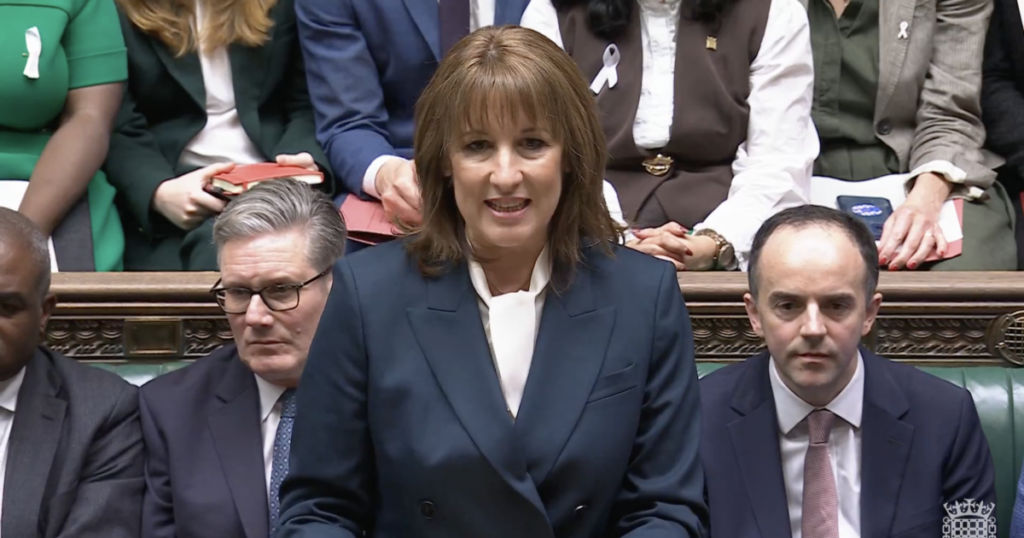There were some radical choices in Rachel Reeves’ Budget, but some will leave low and middle-income workers paying the price for reducing the national debt
The chancellor Rachel Reeves has now delivered her second, much trailed, Autumn Budget. It started off with the Office for Budget Responsibility leaking the Budget document before Reeves delivered her statement. The government was also admonished by the deputy speaker Nusrat Ghani for giving pre-Budget briefings to the press, which she said had been increasing over several years but have reached “an unprecedented high”.
In today’s Budget, Reeves set out her “Labour choices”, which she said were “Not austerity. Not reckless borrowing. Not turning a blind eye to unfairness”, but “cutting the debt, waiting lists and the cost of living.”
Some of her choices, including scrapping the two-child limit, hiking taxes on gambling firms and mansion tax charges will help those who need it most while targeting the wealthy. However, other policy choices will leave low and middle-income workers paying the price for reducing the national debt.
Here are five key takeaways from Reeves’ budget:
1. Income tax thresholds remain frozen
Before 2022, income tax thresholds were increased every year in line with inflation. Rishi Sunak froze income tax thresholds from April 2022 until 2026. The Tories extended that freeze until 2028, and now Reeves has announced she will freeze them until 2030. At the last Budget, she said she wouldn’t freeze the thresholds beyond 2028, as that would “hurt working people”.
The key thresholds will now remain unchanged for the rest of the decade:
- The personal allowance will stay at £12,570.
- The higher-rate threshold will remain at £50,270, after which earnings will be taxed at 40%.
- Earnings above £125,140 will continue to be taxed at 45%.
This is being called a ‘stealth tax rise’ because, as wages increase, people will pay more tax even though rates aren’t rising, breaking Labour’s manifesto promise not to raise taxes.
Unison general secretary Christina McAnea said: “The chancellor could and should have asked the wealthiest to pay more. Putting money in the pockets of working people boosts local economies. Freezing tax thresholds does the opposite.”
The government will also slash the tax-free allowance on Cash ISAs from £20,000 to £12,000, while reserving an £8,000 allowance to put into Stocks and Shares ISAs. Sara Hall, co-executive director at Positive Money, said “This will not boost investment in the things we need, it will just push up the price of stocks and shares, mostly benefiting the City of London”.
2. Higher taxation on mansions and landlords
Reeves will enact council tax reforms from April 2028 on high value properties, called the High Value Council Tax Surcharge. Properties worth more than £2 million will pay a yearly surcharge of £2,500, while properties worth £5 million will pay a £7,500 year surcharge on top of council tax. Reeves said this would affect less than the top 1% of properties, and will generate £400 million in 2028-29. Some will say that the council tax system needs more far-reaching reform than this, including by revaluing properties and re-assessing how much council tax they should pay.
Landlords, who do not currently pay national insurance contributions, will pay an additional 2% on property income from April 2027. The government says this is an attempt to make the tax system fairer and narrow the tax gap between landlords and tenants.
3. Closing the tax gap
Reeves also vowed that the government will raise £10 billion in revenue in 2029/30 by collecting more unpaid taxes and targeting those who try to “bend or break” the tax rules. The government will also give HMRC new powers to pursue promoters of tax avoidance schemes.
4. Gambling firm taxes doubled
Gambling firms will pay 40% tax on online gambling activities from April 2026. This marks a significant hike from the 21% they previously paid and will go towards paying for scrapping the two-child limit (which will cost around £3 billion by 2029/30). Reeves said she was increasing tax on gambling companies because “remote gambling is associated with the highest levels of harm”. This will raise £1 billion a year by 2031. Gambling firms have lobbied hard against a tax rise, with chair of the treasury committee Meg Hillier MP, saying their “scaremongering has failed”.
5. Two-child limit scrapped
The two-child limit on Universal Credit, which restricts households from receiving child benefit payments for a third or subsequent child born after April 2017, will be scrapped from April 2026. According to the Child Poverty Action Group, every day the two-child limit remains in place, it pushes 109 more children into poverty.
According to UK Government estimates, the measure will take 450,000 children out of poverty by 2029-30. Reeves criticised the Tories’ rationale for introducing the policy in 2017, and said that “kids have paid the price” for it. Reeves said she will also remove the “vile” rape clause in the policy, which requires “women to prove if their children have been conceived non-consensually to receive support”.
Olivia Barber is a reporter at Left Foot Forward
Left Foot Forward doesn’t have the backing of big business or billionaires. We rely on the kind and generous support of ordinary people like you.
You can support hard-hitting journalism that holds the right to account, provides a forum for debate among progressives, and covers the stories the rest of the media ignore. Donate today.




